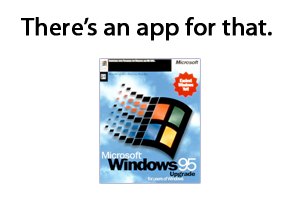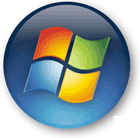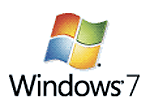The persisting popularity of netbooks has been a major drain on Microsoft’s Windows client licensing revenue. The worldwide economic downturn has driven many people to purchase cheaper machines, but I believe that the netbook’s ascension also reflects changing consumer tastes.
Windows client licensing revenue fell $1 billion from last year, and Microsoft’s unearned revenue from multi-year license agreements has flatlined.
Unless Windows 7 proves wildly popular, the company’s prospects for restoring its Windows business to its past luster appear to be grim. I expect that the company will experience a cyclical earnings bump that will crest near where previous Windows releases have in the past, but growth will be less substantial.
That is because there are simply too many alternatives, with the Web acting as the great equalizer. I access Gmail just as quickly on a netbook running Linux as I would on a higher end laptop powered by Windows. And even though netbook hardware is wimpy by current standards, netbooks are as powerful as high-end machines were on the not-too-distant past
Not everyone is a developer or a gamer. I believe that the netbook meets the “good enough’ threshold for most people, and there is a decent assortment to choose from on the market.
Many of those people may have been compelled to purchase a netbook by financial reasons, but it is highly possible that many will be satisfied enough to purchase another netbook in the future. It could mean a permanent change in consumer buying behavior.
Microsoft seems to understand that, because it is downplaying netbooks at every chance it can get, and is attempting to direct customers toward more expensive alternatives. But the industry has failed to create really compelling products that would “wow’ me into paying more–so far.
I am reminded of my late grandmother, who was a child of the Great Depression. She wouldn’t spend money needlessly, and would reuse what she had (including tinfoil). People are experiencing varying degrees of hardship during this recession, and it is not unreasonable to expect that their spending habits will be permanently altered.
Consequently, if Microsoft does not see its market share slide, it will see its revenues fall. It cannot charge as much for a copy of Windows on a $400 machine than it would have traditionally done on more expensive systems. The Windows cash cow is slowly beginning to dry up.
 I continue to think of my iPhone not as a phone but as a personal computer. Which is why I continue to be so nonplussed about Apple’s barring of some applications on the grounds that they compete with its own apps, and others at (reportedly) the behest of AT&T. The moves may well serve Apple’s short-term goals. Long term, though, I think they’ll make the iPhone a weaker, less useful platform. That’s not in the interest of iPhone owners, Apple, AT&T, or (come to think of it) anyone except Apple’s competitors.
I continue to think of my iPhone not as a phone but as a personal computer. Which is why I continue to be so nonplussed about Apple’s barring of some applications on the grounds that they compete with its own apps, and others at (reportedly) the behest of AT&T. The moves may well serve Apple’s short-term goals. Long term, though, I think they’ll make the iPhone a weaker, less useful platform. That’s not in the interest of iPhone owners, Apple, AT&T, or (come to think of it) anyone except Apple’s competitors.
 Multiple reliable sources are reporting that
Multiple reliable sources are reporting that  Last week, Microsoft COO Kevin Turner said he was
Last week, Microsoft COO Kevin Turner said he was  Gizmodo, which published a
Gizmodo, which published a  Microsoft has announced its fourth quarter financial results, and for those of us who are Microsoft customers rather than shareholders, the most striking factoid may be this: The company’s revenue from Windows
Microsoft has announced its fourth quarter financial results, and for those of us who are Microsoft customers rather than shareholders, the most striking factoid may be this: The company’s revenue from Windows  Windows 7 has been released to manufacturing, according to a
Windows 7 has been released to manufacturing, according to a